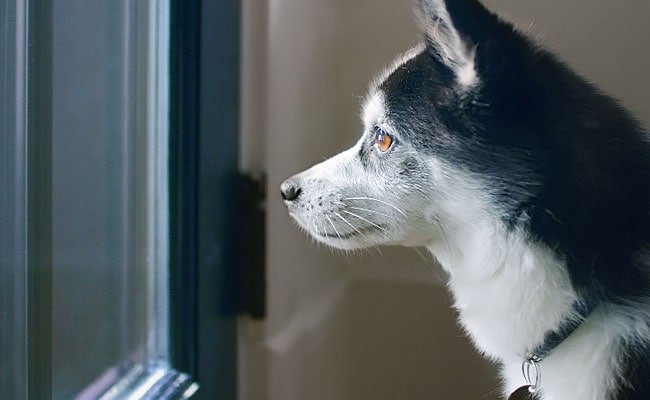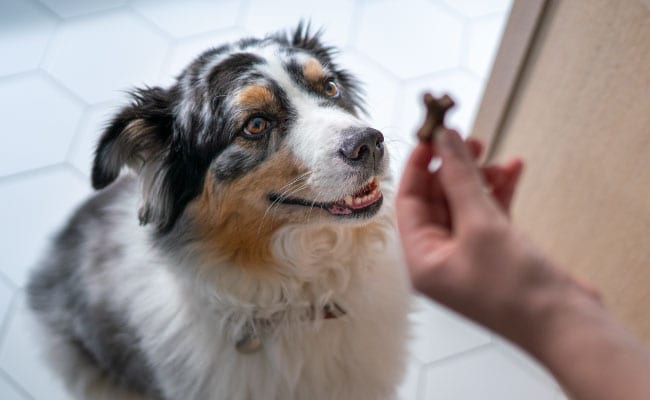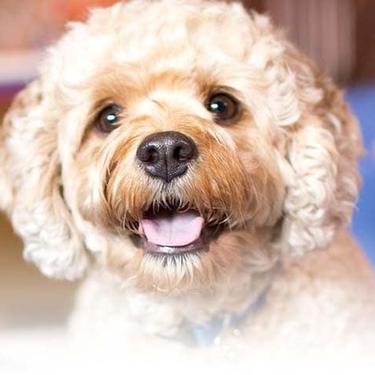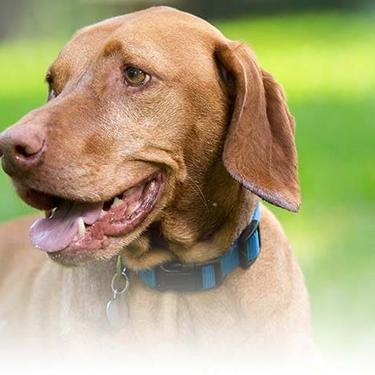
-
Find the right food for your pet
Take this quiz to see which food may be the best for your furry friend.
Find the right food for your pet
Take this quiz to see which food may be the best for your furry friend.
Featured products
 Adult Healthy Cuisine Roasted Chicken, Carrots & Spinach Stew Dog Food
Adult Healthy Cuisine Roasted Chicken, Carrots & Spinach Stew Dog FoodDelicious roasted chicken paired with tender vegetables in a succulent stew
Shop Now Small & Mini Savory Stew with Chicken & Vegetables Dog Food
Small & Mini Savory Stew with Chicken & Vegetables Dog FoodA delicious complement to the nutrition of Science Diet Small & Mini 7+ dog food
Shop Now Adult 7+ Perfect Digestion Chicken, Whole Oats & Brown Rice Recipe Dog Food
Adult 7+ Perfect Digestion Chicken, Whole Oats & Brown Rice Recipe Dog FoodScience Diet's breakthrough nutrition supports ultimate digestive well-being & healthy microbiome for dogs age 7+
Shop NowFeatured products
 Adult 7+ Senior Vitality Chicken & Vegetable Stew Cat Food
Adult 7+ Senior Vitality Chicken & Vegetable Stew Cat FoodImproves Everyday Ability to Get Up & Go
Shop Now Adult Savory Entrée Can Variety Pack Cat Food
Adult Savory Entrée Can Variety Pack Cat FoodPrecisely balanced nutrition with the delicious taste of savory minced chicken to help fuel the energy needs of cats during the prime of their life
Shop Now Adult 7+ Tender Tuna Dinner Cat Food
Adult 7+ Tender Tuna Dinner Cat FoodWith delicious chunks in a decadent gravy
Shop Now -
Dog
- Dog Tips & Articles
-
Health Category
- Weight
- Food & Environmental Sensitivities
- Urinary
- Digestive
- Joint
- Kidney
-
Life Stage
- Puppy Nutrition
- Adult Nutrition
- Senior Nutrition
Cat
- Cat Tips & Articles
-
Health Category
- Weight
- Skin & Food Sensitivities
- Urinary
- Digestive
- Kidney
-
Life Stage
- Kitten Nutrition
- Adult Nutrition
Featured articles
 Does My Pet Hate Me?
Does My Pet Hate Me?Learn tips for bonding with your pet if you've ever thought, 'My dog doesn't like me, or 'Why do I have a standoffish cat?'
Read More Why Are Dogs and Cats So Cute?
Why Are Dogs and Cats So Cute?If waggy puppy dog tails and furry kitten yawns make you swoon, you're not alone. Why are cats so cute? And, dogs too! Let's find out!
Read More Do Dogs and Cats have Belly Buttons?
Do Dogs and Cats have Belly Buttons?Learn whether cats & dogs have belly buttons like humans, what the function is, and if there are any health concerns associated with it.
Read More -


Ding-dong!
For some dogs, the sound of a doorbell can trigger a barrage of barking like no other, creating havoc for both you and the visitor at your door. Let’s learn the reasons why your doorbell gets your dog so excited and how you can keep this situation from getting so chaotic.
Why do dogs bark at the door?
Humans are a friendly bunch, and even then, we tend to dread the sound of our doorbell ringing unexpectedly.
For dogs, the stress can be tenfold, so that friendly little chime might as well be a voice shouting "INTRUDER ALERT!" around the house. Then again, some dogs aren’t scared of what’s behind the door — they’re just way too excited — and while we all appreciate a dog’s enthusiasm, few visitors appreciate being jumped on or barked at the second the door opens.
So, before your next guest has a rude welcome, here are some ways you can help your dog become a better greeter.

The Short-Term Solution: Meet Guests Before They Approach Your Door
There are times when you’re expecting at least a few guests to come to your door. A quick way to keep their welcomes warm is by making as much distance from your dog and their arrival as possible.
When you’re expecting guests, try and greet them before they reach the door. For Halloween, you can wait for kids on the porch, or leave a bucket outside to circumvent the constant doorbell ringing. For other guests (such as a dinner party, birthday party, etc.), you can leave a sign by the door like, “No need to ring, just come on in!” as a way to bypass any doggy doorbell dread.
As for your dog, make sure to keep them in a crate or other comfort zone in the house, and try to keep the TV or radio playing to drown out the noise of visitors.


Tasty Tips
The Long-Term solution: Training Your Dog to Relax at the Door
Step 1: Get Your Dog Used to the Door
Inside your home, practice approaching the door with your dog. Without ringing the doorbell, repeat a common phrase, such as "just a moment" or "be right there," and then treat your dog when they stay calm. If you've ever tried clicker training your dog, this is a great opportunity to incorporate the process. Practice walking to the door and touching the knob/handle. Look at your dog, give your dog a verbal phrase, and order them to sit. When your dog follows your command, reward handsomely with a healthy treat.Repeat as necessary until your dog finds you going to the door a rewarding experience.

Step 2: Adding Distance Between You & the Door
Now the challenge is to help your dog stay relaxed before you reach the door. Try repeating your phrase from different parts of the home, then walking to the door, touching the knob, and commanding your dog to sit as previously described.
Step 3: Opening the Door
By now, the combination of your verbal command and walking to the door should be fairly common in your dog's eyes. Repeat the previous steps as described but begin to open the door as you treat your dog for sitting. Continue as necessary until opening the door is just part of the "trick".
Step 4: Ringing the Doorbell
Let another family member or friend ring the doorbell, then immediately go into your training routine: say your phrase, touch the knob, then ask your dog to sit. Treat your pooch as you open the door, then repeat until the whole process feels natural.
Remember that quiet is KING. Only reward your dog when they cease barking and stay consistent. Even the most frustrating processes will begin to yield results over time.


One of our staff authors prepared this article for you
Related products

Delicious braised beef paired with tender vegetables in a succulent stew

Delicious roasted chicken paired with tender vegetables in a succulent stew

A delicious complement to the nutrition of Science Diet Small & Mini 7+ dog food

Science Diet's breakthrough nutrition supports ultimate digestive well-being & healthy microbiome for dogs age 7+
Related articles

Large and giant breed puppies have different nutritional needs than other dogs. Learn how to provide the special care they need to grow up big and strong.

Learn about choosing the right food for your mature or older dog, ensuring he receives the correct balance of nutrition.

Hill's Science Diet Small & Toy Breed dog foods are designed to meet the nutritional needs for your small dog at every life stage. Learn more here.

Your dog's coat and skin are a big part of your dog's overall health. Ensure you keep your dog's coat healthy, by following these simple tips.

Put your dog on a diet without them knowing
Our low calorie formula helps you control your dog's weight. It's packed with high-quality protein for building lean muscles, and made with purposeful ingredients for a flavorful, nutritious meal. Clinically proven antioxidants, Vitamin C+E, help promote a healthy immune system.
Put your dog on a diet without them knowing
Our low calorie formula helps you control your dog's weight. It's packed with high-quality protein for building lean muscles, and made with purposeful ingredients for a flavorful, nutritious meal. Clinically proven antioxidants, Vitamin C+E, help promote a healthy immune system.

